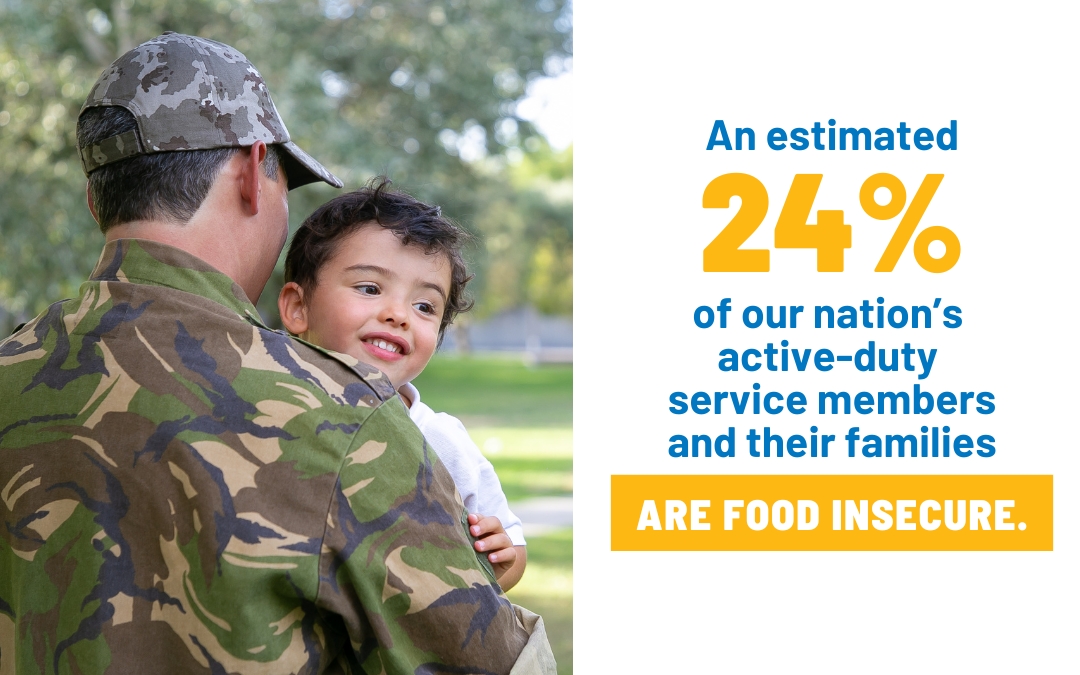Military families make many sacrifices so their loved ones can bravely serve our country. Unfortunately, one of the challenges they are being asked to take on is struggling to afford basic necessities like food. A recent study found that nearly one-fourth (24%) of active-duty service members were food insecure. Food banks and their community partners across the nation have witnessed these challenges firsthand and are calling for action to be taken by asking for Congress to better assist military families currently struggling with hunger and financial hardship.
Military hunger is a complex problem influenced by the unique set of challenges faced by service members and their families. Many enlisted personnel earn low salaries which makes supporting a family challenging. Frequent relocations also contribute to high unemployment rates among military spouses, further straining their household budgets. To complicate matters more, the costs of living around military bases are often significantly higher, and childcare expenses can quickly pile up. Collectively, these factors make it difficult for military families to keep food on the table.
Military personnel and veterans often deal with tough challenges, and the culture in the military can make things harder. Many service members feel they can’t ask for help because they don’t want to seem weak or dependent on others. This fear can lead to them not talking about their struggles with friends or family. They also worry about being judged or facing negative consequences at work if they reach out for support. Because of this, they might miss out on important resources that could help their families.
Additionally, military families who do seek assistance through programs like SNAP (Supplemental Nutrition Assistance Program – once known as Food Stamps) may still encounter hurdles in meeting the eligibility requirements. Service members who live off base receive a Basic Allowance for Housing (BAH) to help cover costs. This allowance counts as income in the calculation to determine SNAP eligibility, disqualifying many service members from accessing SNAP benefits. Service members who live on base do not face this problem.
WHAT CAN BE DONE?
Food banks across the country are working hard to help service members and their families access nutritious foods, both on and off bases. However, to end military hunger in the long run we need to create a systems change. The Feeding America network has urged the federal government to take additional, crucial steps to better serve the individuals who serve our country.
After months of negotiations, the House and Senate Armed Services Committees released a fiscal year 2025 (FY25) National Defense Authorization Act (NDAA). The bill recently passed the House and the Senate is expected to take up the legislation next week. The final version of the FY25 NDAA includes two of Feeding America’s top priorities to address military hunger, along with a handful of other significant improvements to military pay and benefits. Most notably, the bill would expand the Basic Needs Allowance for military families by raising the gross income eligibility threshold from 150% to 200% of the federal poverty level.
You can help by taking action and contacting your member of Congress to address military hunger.

